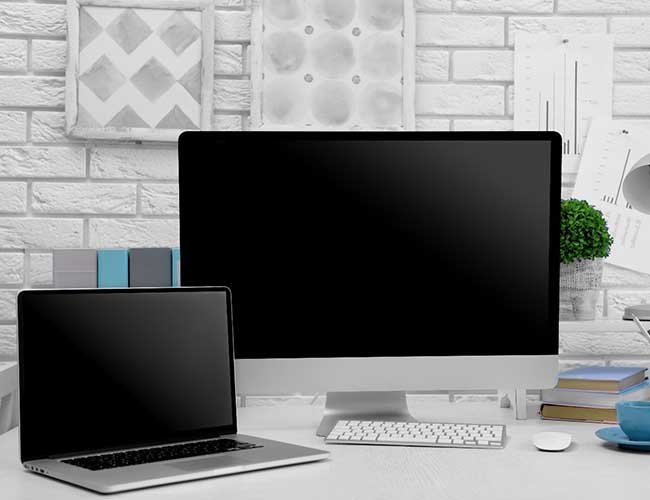Even though laptops seem to have overtaken PC’s as the computers of choice for most of us, there are still plenty of reasons why you might want to choose a traditional PC. When deciding between purchasing a PC and a laptop, you’ll need to consider a handful of aspects and decide that which fits your needs the best. Below we’ve laid out some points that compare the two types of computers, providing pros and cons for each to help you make a more informed purchasing decision.
- Cost
Desktops can start as low as $400 for a full package (computer & monitor) and still be a pretty powerful system. There is a wide variety of component options available for desktops, allowing for a large range of prices and customizations, but the starting point is relatively cheap.
Unlike desktop computers price can be considerably higher for a laptop, ranging up to $1500 or more to get a more powerful system consisting of higher speed, better graphics, more storage space, etc.
- Portability
Desktops are quite large in size and have a separate monitor. While it’s possible to take a desktop from place to place, it’s troublesome and definitely not the choice for portability. They are designed to be used in a fixed location and not moved around much.
Laptops are however very portable due to their compact size. They were designed to be taken from place to place, carried in a backpack or laptop carrying case. They are great for on-the-go use.
- Processor
Desktop processors are larger in size and can be more powerful than laptop processors. New, advanced processors on the market are typically available in desktop computers first rather than a laptop.
Laptop processors have nearly caught up to desktop processors, but are still limited in some cases. Gaming laptops can have an equal performance but have a much higher price for the same specifications.
- Power Usage
Desktop computers tend to use more power than a laptop. They have to power multiple components inside the computer and a monitor which requires more power.
Laptop computers use less power than a desktop computer since it has smaller components meaning less power consumed. Laptops also have a battery, unlike the desktop computers.
- Upgrading
Most components in a desktop are easily removable which makes it easier to upgrade and since desktop cases are usually bigger they’re easier to work in while doing any upgrading.
Whereas memory and hard drive are about the only components that can be upgraded in a laptop. Rest of the remaining components are either built-in or not removable or the laptop is not designed to work with an upgraded version of a component. Unlike a PC a need to upgrade anything other than the hard drive and memory usually requires a brand new laptop.





